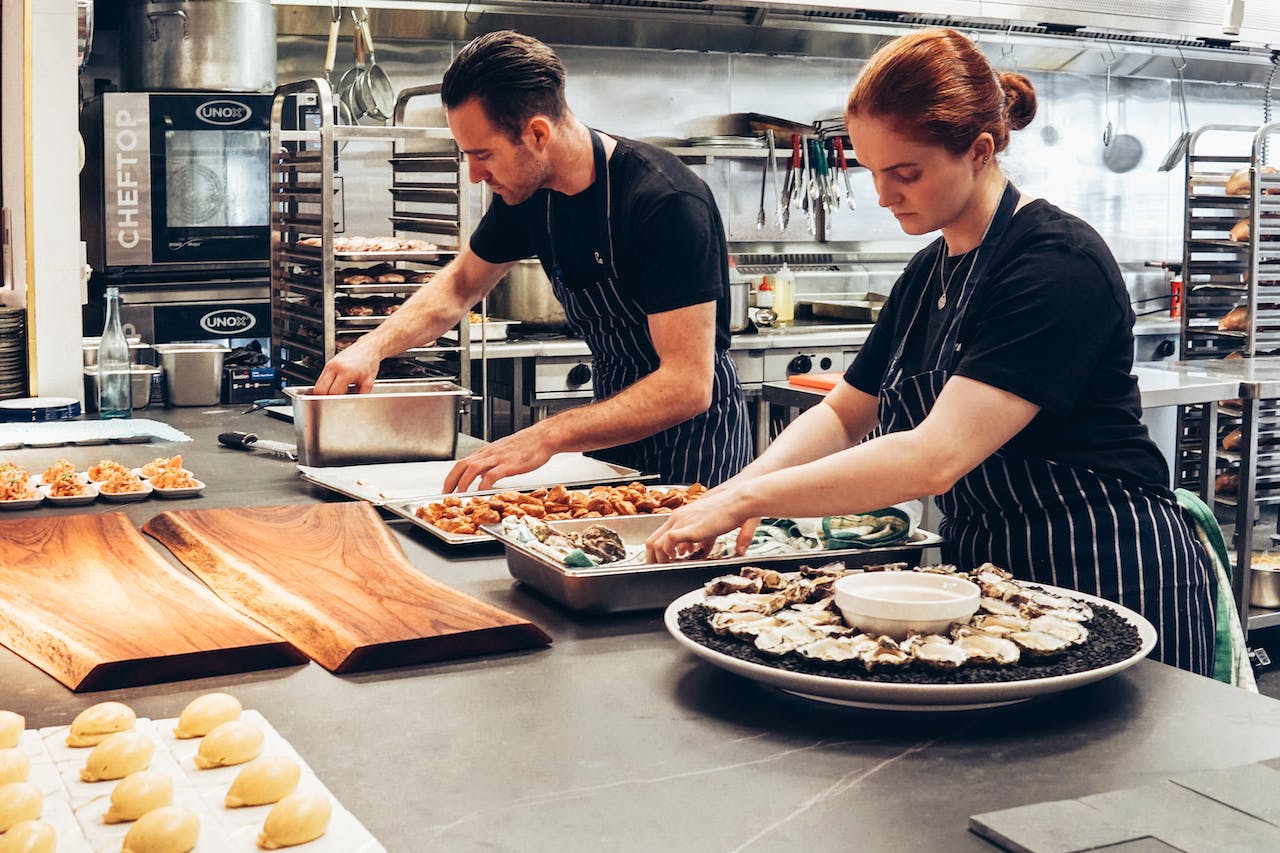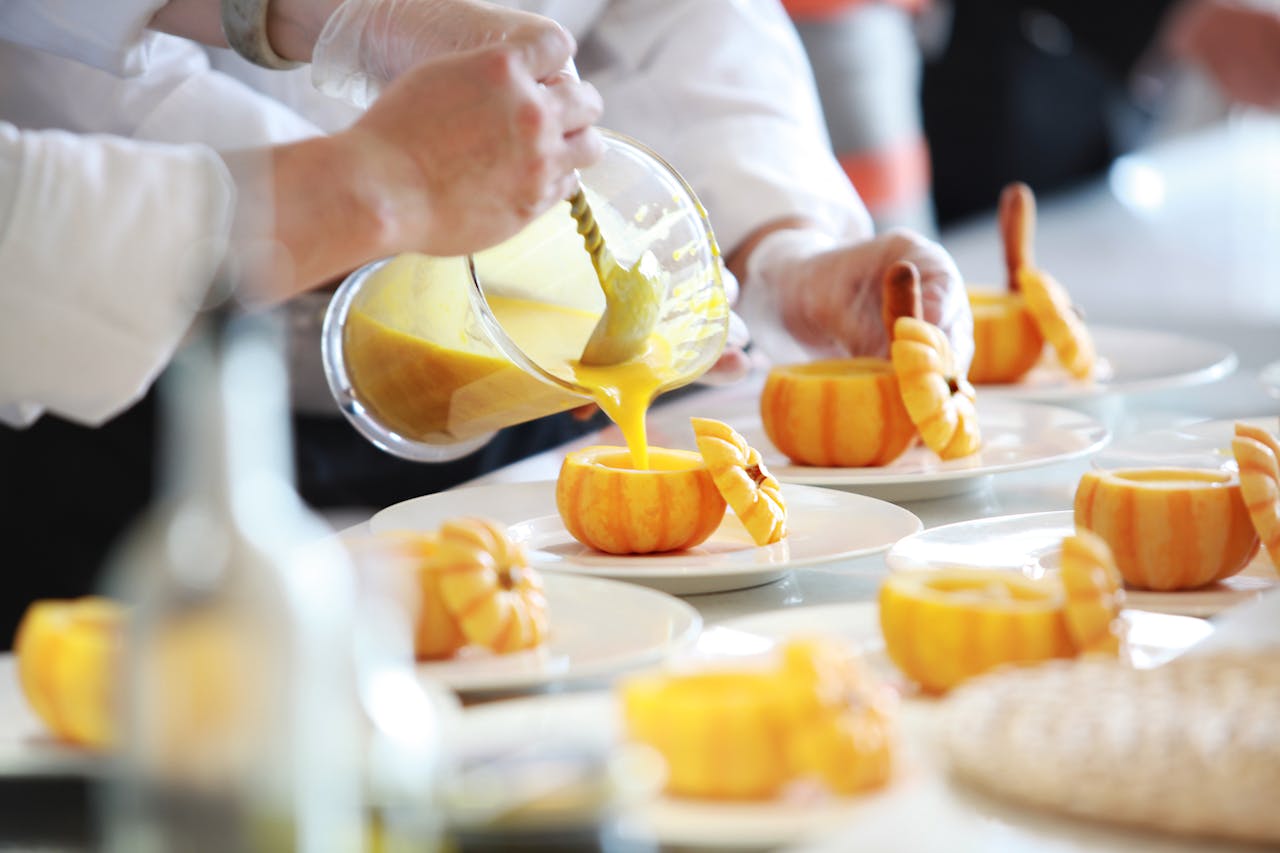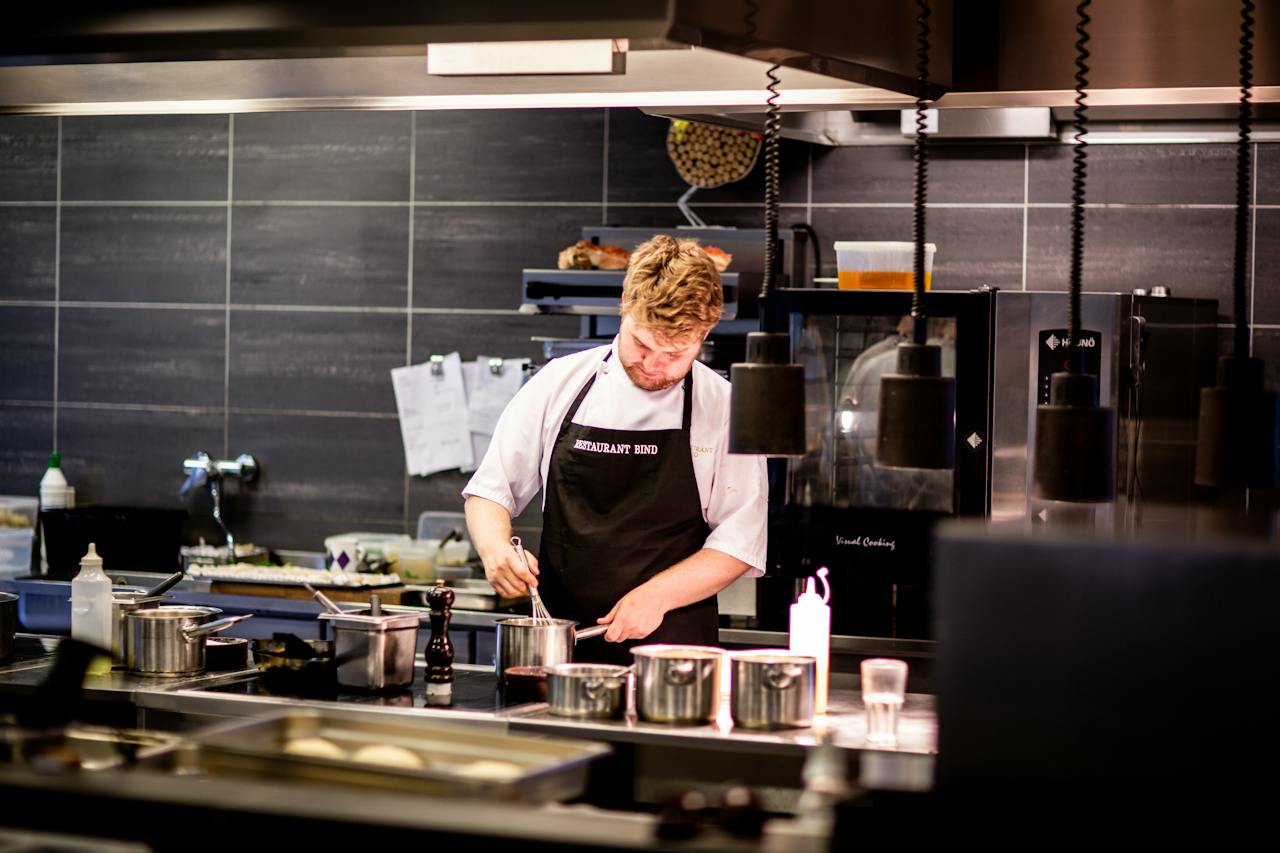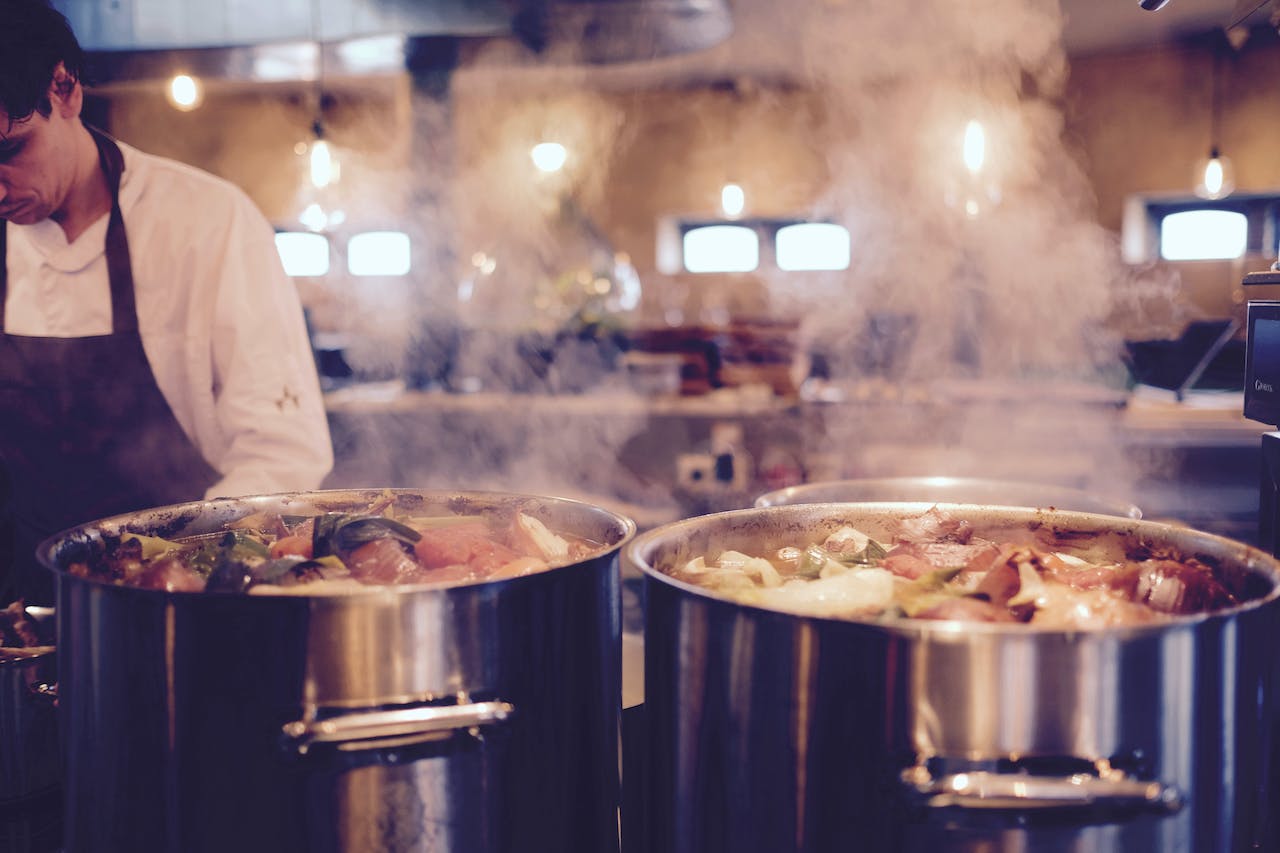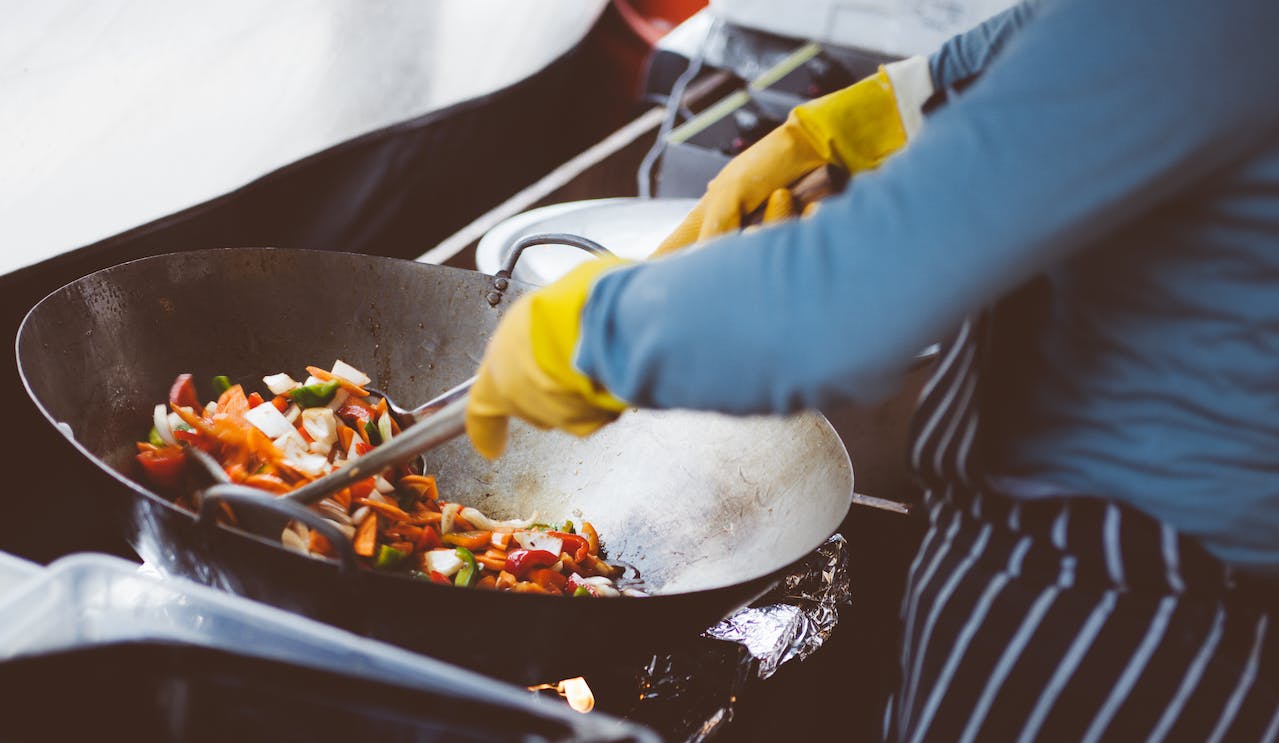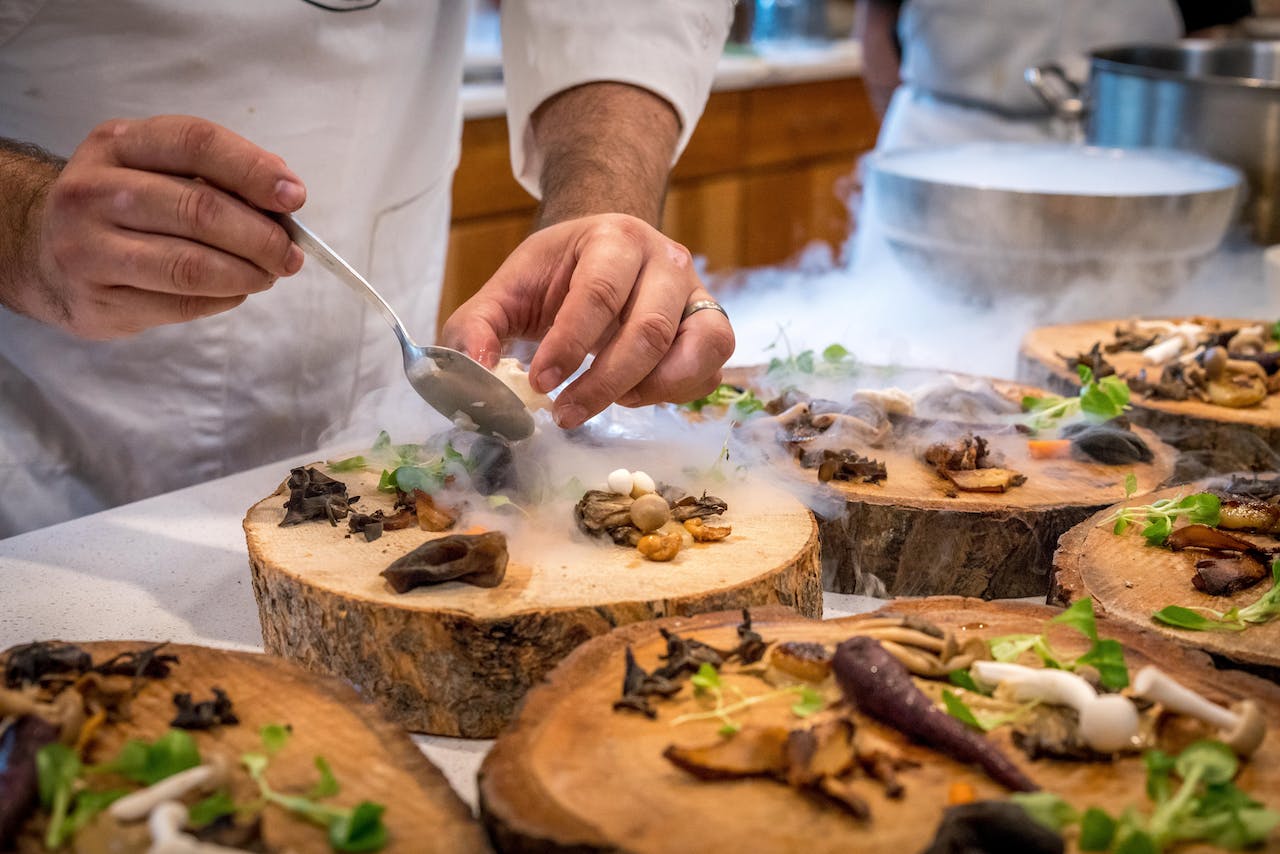
If you love experimenting in the kitchen and enjoy cooking, you can choose to become a chef. Even while it's difficult work, if it's something you love, it can also be very fulfilling.
By practicing at home, working in a restaurant, and gaining feedback from others, you may begin developing the culinary talents you'll need tobecome a cooking pro. After that, seek culinary instruction, either in a classroom or with a mentor.
Professional chefs prepare meals for patrons in the kitchen of restaurants and other food service establishments. Senior chefs often handle a range of additional responsibilities as well, such as managing the kitchen and creating meals.
A professional cook's duties often include food preparation, but daily, head chefs, in particular, are typically more engaged in managing sous chefs and other cooks. This may include buying, scheduling, and training.
The duties performed by a professional chef will probably change according to the kind of restaurant they work for. Working under head chefs, sous chefs are in charge of adhering to the head chef's directions for food preparation. Some individuals decide to become private chefs, who usually serve one customer full-time. Here are tips on how to become a Cooking pro!
As a professional chef, you will create menus and prepare food using appliances like blenders, grinders, grills, broilers, pots, and ovens.
Planning the menu, making sure the food is prepared and presented well, obtaining supplies, and figuring out how much the items will cost are other duties. You'll maintain hygienic standards in accordance with laws pertaining to food safety.
Research The Job Possibilities
If you're interested in becoming a professional chef, you have a lot of possibilities. To choose the most focused path of action, start by thinking about your unique interests and the kinds of positions that interest you.
For example, executive chefs and head cooks handle various aspects of food service administration in addition to food preparation. You may also work as a pastry chef, making pastries, or as a personal chef at a private residence. A career as a caterer is an additional option.
Consider A Postsecondary Program
A wide range of specialized institutes and universities offer culinary arts programs. Culinary arts courses include a wide range of subjects, including butchering, baking theory, professional kitchen management, culinary terminology, cooking methods, and stock preparation.
They are often offered via certificate, associate's, and bachelor's degree programs. Specific programs provide focused study in fields like catering or pastry arts.
For those who want to become professional chefs, an undergraduate degree program in hospitality or restaurant management may be helpful. Topics like food production, marketing, bookkeeping, inventory management, and customer service are all included in these programs.
Consider An Apprenticeship
Some people who want to work as professional chefs choose to enroll in apprenticeship programs rather than pursue formal schooling. These programs may provide you with both practical culinary experience and classroom training.
They might continue for up to three years. The American Culinary Federation, labor unions, and professional culinary schools sponsor programs for culinary apprenticeships.
Advance Your Career
You'll probably begin as an entry-level cook or line worker, but with time and effort, you can move up to jobs with more responsibility. Chefs and head cooks could anticipate better employment chances between 2020 and 2030, according to the U.S.
Bureau of Labor Statistics (BLS). This is particularly true for cooks who also have business abilities.
Obtain A Certification
Once you've developed your skills as a professional chef, consider considering being certified by the American Culinary Federation.
The Personal Certified Chef, Certified Pastry Culinarian, and Certified Executive Chef qualifications are among the 14 certificates that the federation provides. According to the BLS, certification isn't required but might help you get a better job or pay.
Develop Your Cooking Skills
Cooks are categorized into multiple tiers, starting with the "kitchen slave," who peels potatoes and does other menial prep labor before moving up through the kitchen's different stations. The rank of the chef increases with the degree of competence required to operate a particular station.
Practice Cooking At Home To Build Your Skills
- Choose recipes that appeal to you and try making them yourself. As your culinary talents improve, experiment with dishes that call for new techniques. Try modifying recipes to make them your own without fear.
- Try experimenting with various cuisines to see what suits your palate and style. For instance, you may prepare Mexican cuisine one evening, Italian food the next, and then your version of hamburgers.
Experiment With Food To Create Your Recipes
- Making your unique meals is a big part of the joy of becoming a chef. After becoming acquainted with essential components, experiment with other recipes to create your own. Take chances to produce something entirely original!
- To produce anything new, start by altering an existing recipe. Next, try combining components according to a recipe.
- You'll make some successful dishes and others that may need to be edible. Remember, this is normal, so keep trying.
Cook For Other People To Get Feedback On Your Cooking
- Even while it might be unsettling to accept criticism, it can really benefit your development as a chef. As frequently as you can, prepare food for others and then kindly ask them to comment on what they liked or didn't like. Take into account the suggestions that make sense to you.
- Serve your meal to others who like the kind of food you prefer to prepare. They'll have more knowledge to provide. Let's imagine, for example, that you like to cook Indian cuisine. Someone who appreciates Indian cuisine will give you more insightful criticism.
Watch Other Chefs To Learn Their Techniques
- Observing others may teach you a lot of things. Take a look at other chefs' techniques by watching culinary programs and Internet courses. Furthermore, watch chefs that you know or chefs in training. Attempt to pick up tips from their methods. If you find recipe books fascinating, read them. Since chefs have been around for a lot longer than the internet, conducting some offline study might introduce you to fresh concepts influenced by more established ones.
- Don't stress about trying to emulate someone else's methods. While you should have your unique approach, it's helpful to see how they execute specific techniques and use materials in novel ways.
Get A Job At A Restaurant To Build Your Skills And Resume
- Although being a chef would be amazing, climbing the professional ladder takes time. Take a low-level restaurant job to get the necessary experience and abilities first. Apply for any local job postings you come across for restaurants.
- Everyone begins somewhere, so your first restaurant job won't be especially prominent. Most likely, you'll be a line cook. This will assist you with gaining the knowledge and abilities required to advance in your job and finally become a chef.
Start Cooking Professionally
Although they prepare and cook meals for a livelihood, professional cooks are different from chefs. A café or restaurant could employ them. They could be employed by banquet halls internally or as caterers. They could help out a personal chef or work on a food truck.
Start Researching The Options
Cooks are spoiled with choices! You may set your eyes on Michelin-starred eateries like Ever in Chicago or Knife & Spoon in Orlando and strive to cook in the finest kitchens. You may have a strong interest in a particular cuisine, such as French haute cuisine or the craft of making the ideal sushi.
The chef is what piques your interest rather than the restaurant. Your dream job would be to assist a rising celebrity like Mashama Bailey or a great chef like Curtis Duffy. Though it's not necessary to have everything planned out, knowing where you want to work as a professional chef might help you map out your future.
Get Your Culinary Education
Upon hiring, you could get on-the-job training to familiarize yourself with the procedures and recipes you'll need to follow. However, you'll also be required to bring some degree of knowledge with you. You must be proficient in cooking in order to work as a chef! Here's where attending culinary school may be very helpful.
The culinary arts programs at Escoffier may equip aspiring professional cooks with the equipment they need on a daily basis in the workplace. Pupils might gain knowledge of the essential knife skills and different cuts they would be required to make. They may become proficient in mise en place, which would guarantee that their workstations are kept tidy and orderly.
Fundamental culinary techniques, crucial hygiene guidelines, baking, and pastry arts, an Escoffier alum may provide all of these proficiencies to the workplace. Therefore, compared to an entry-level worker who did not attend culinary school, they could need less training.
Complete An Externship
You may need to figure out what to anticipate when you put on your apron and go to the kitchen if this is your first experience cooking professionally. An externship in culinary arts may assist in bridging the knowledge gap between academic coursework and the demands of the working world.
Every student completes one or two in-person industry externships, which allows them to get hands-on experience and see what a genuinely functioning kitchen is like. Before beginning their first formal positions as culinary school graduates, new chefs may use this experience to become used to the pace and excitement of a restaurant setting, which might be a significant learning opportunity.
For some graduates, externships have even resulted in full-time employment possibilities! Thus, it is advised to students to choose their externships in accordance with their interests or a particular field they want to pursue.
Start Working, Keep Learning
Students may be prepared for their first entry-level work in the business after completing culinary school at Escoffier. Preparing meats, cutting and blanching veggies, and precooking foods like sauces or soups are all possible duties of a prep chef.
The labor of prep cooks is vital to a restaurant's success. However, this is only sometimes what people picture when they see a skilled chef. Frequently, they envision a line cook handling a particular station, such as the grill, sauté, or garde manger, while serving customers.
You may be able to move up from a prep cook role to a line cook job very fast if you have a culinary degree or diploma and put in some effort. Naturally, this varies depending on the worker and the business! However, a prep cook might position oneself for that promotion if they are ready to learn and willing to follow instructions.
Earn Additional Certifications
What happens when you become a professional chef? There's even more to discover. To improve their cooking skills and demonstrate their commitment to the industry, many chefs decide to pursue more education and certifications.
One well-known trade organization that certifies cooks and chefs is the American Culinary Federation. The highest qualification available for cooks is the Certified Culinarian® distinction; sous chefs, chefs de cuisine, and executive chefs may also earn further certifications.
Frequently Asked Questions
How Can I Be A Professional Cook?
Enroll in a formal culinary program. Clear your culinary school coursework to get a professional credential. Get experience working in a professional kitchen. Get a full-time position at a prestigious eatery.
What Is The Highest-paying Job In Cooking?
The highest-paying Executive Chef positions pay up to $118,000 annually. An executive chef oversees all aspects of a restaurant's culinary business. Executive chefs oversee all kitchen personnel, including sous chefs and dishwashers, as well as inventory, budgeting, menu planning, training, and plating.
What Is A Professional Cook Called?
A chef is a skilled tradesperson and professional cook who specializes in a specific cuisine and is skilled in all facets of food preparation.
Conclusion
To become a cooking pro, having a love for cooking is necessary while cooking all day. Delicious food is created from the heart. It will be beneficial if you find delight and satisfaction in serving that one particular meal to every single guest who requests it since you will probably be making several of the same menu items again and over.
To produce excellent results, a chef must take great care in every aspect of their work, from preparing the ingredients to cooking them to cleaning up afterward. This requires passion.

